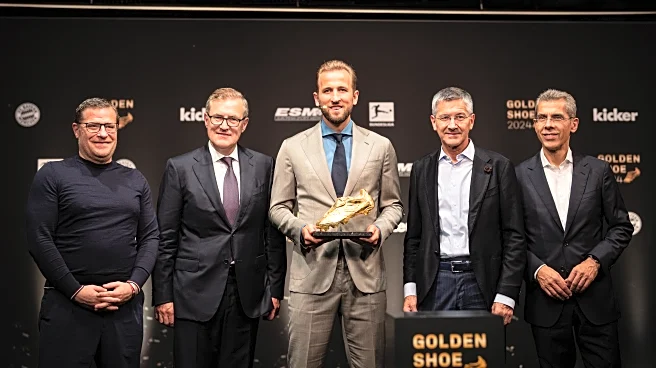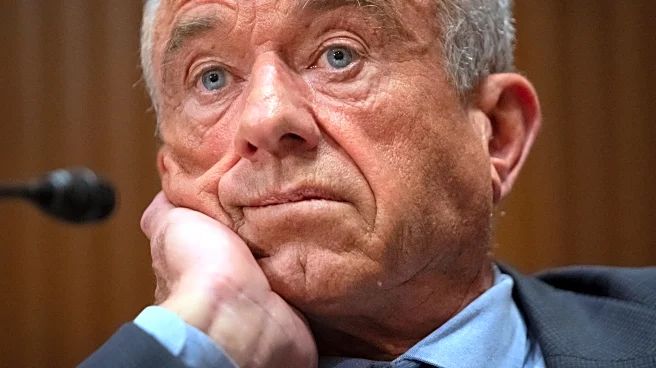What's Happening?
Ryan O'Reilly, center for the Nashville Predators, expressed strong dissatisfaction with his team's performance following their 3-1 loss to the Philadelphia Flyers at Bridgestone Arena. O'Reilly, who scored
the first goal for Nashville, criticized himself for turnovers and failing to make simple passes, contributing to the team's offensive struggles. Despite being tied for the team lead in goals and second in points, O'Reilly's self-critical remarks highlighted his frustration with the team's inability to secure victories. The Predators were held to just three shots in the third period, and Flyers' goalie Dan Vladar maintained his unbeaten record against Nashville, sealing the win with an empty net goal by Travis Konecny.
Why It's Important?
O'Reilly's comments underscore the challenges faced by the Nashville Predators in maintaining competitive performance in the NHL. His self-criticism reflects broader issues within the team, particularly in offensive execution and leadership. As a key player, O'Reilly's dissatisfaction may signal potential changes in strategy or player dynamics to improve outcomes. The Predators' current losing streak could impact their standings and morale, necessitating adjustments to avoid further setbacks. The team's performance is crucial for maintaining fan support and achieving long-term success in the league.
What's Next?
The Nashville Predators are set to host the Dallas Stars on November 8, providing an opportunity to address their recent performance issues. The team may need to reassess their strategies and player roles to enhance offensive capabilities and secure a win. O'Reilly's leadership and experience will be pivotal in guiding the team through this challenging period. The upcoming game will be a test of the Predators' ability to rebound from their losing streak and demonstrate resilience in the face of adversity.
Beyond the Headlines
O'Reilly's candid remarks may influence the team's internal dynamics, prompting discussions on accountability and performance standards. His leadership style, characterized by leading by example, could inspire other players to elevate their game and contribute to a more cohesive team effort. The Predators' management might also consider strategic changes or player rotations to address the identified weaknesses and enhance overall team performance.











